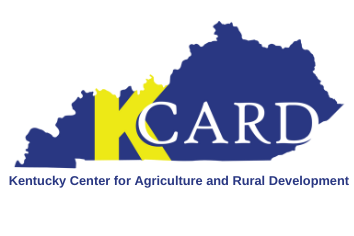Agricultural producers in Kentucky are using raw agricultural commodities including goat milk, cow’s milk, and various herbs to make soaps and cosmetics. Below are some common questions on these products:
Do I need a permit?
Registration with the Kentucky Food Safety Branch is needed to produce and sell lotions, essential oils, lip balms, and other cosmetic items that are applied to and can be absorbed through the skin. To obtain proper registration, contact the Kentucky Food Safety Branch in Frankfort at 502-564-7181. Soaps and shampoos that are washed from the body and do not have persistent skin contact are exempt from the cosmetic requirements.
What are the labeling requirements?
Ingredients should be listed on all cosmetic items and soaps to inform customers of any potential allergens. All cosmetic items made and sold in Kentucky must be labeled according to the guidelines established under the Kentucky Food, Drug and Cosmetics Act. Contact the KY Food Safety Branch about label reviews.
Insurance is important when producing any value-added product, cosmetics, or edible products. Verify any necessary insurance changes with your agent before obtaining the necessary licensing for production.
Where can I make the products?
Facilities are permitted annually by the KY Food Safety Branch. This is different from the home processing law that allows producers to make jams and jellies in a home kitchen for on-farm and farmers market sales. Facilities do not have to be on-site; the producer can establish a relationship with a kitchen that meets the requirements (i.e. local commercial, church, or Extension office kitchen). The add-on for a currently permitted kitchen is simple, requires no fee, but does require a site inspection.
Inspections are requested through the main office of the Food Safety Branch. KY Food Safety Branch inspectors are located across the state, within assigned geographies. Scheduling an inspection can take several weeks but if the facility has been inspected and permitted previously, the inspection should take approximately 2 hours.
Note on using raw goat milk in cosmetic products: raw goat milk is not an approved ingredient for cosmetics due to the risk of bacterial contamination and highly reduced shelf stability. Any cosmetic product made with raw goat milk must have a certificate of lab work on each batch of milk used detailing such information as coliform analysis and a microbial plate count. To reduce the risk associated with goat milk products, most manufacturers substitute this ingredient with an approved powdered product.
For more information about producing and selling cosmetics in Kentucky, read the Kentucky Food (and Cosmetic) Manufacturing Guide or contact the Kentucky Cabinet for Health and Family Services, Department for Public Health, Food Safety Program, Food Safety Branch.
For more information about business planning and marketing plan development for your cosmetic enterprise, KCARD has services to help you.

